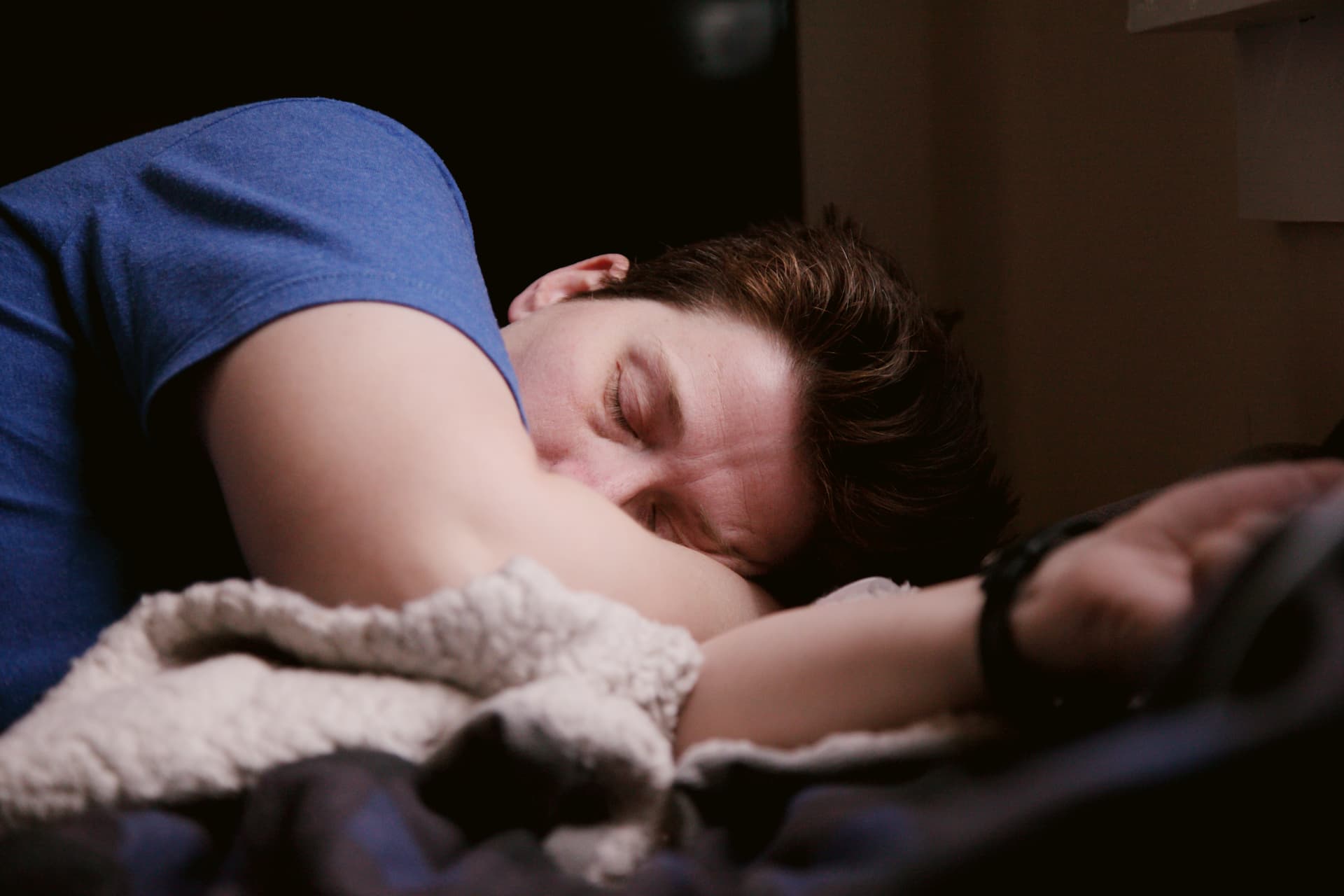Professor David Veale, a consultant psychiatrist at Nightingale Hospital, was recently approached by a patient with the below question. He shares his response, in this insightful blog piece below.
Question: “I keep having dreams…about being a paedophile. In the dream, I am sexually abusing random children, and I enjoy it. I also experience waking images of abusing children, but I know that I don’t really want to do this and won’t.
I also know I can’t control my intrusive thoughts and images, but I have doubts about whether I am enjoying the images, and whether this is my true self.
What I learnt from studying Freud is that my dreams reveal my true self and my deepest desires. So, I assume my dream is telling me that I really would enjoy abusing children.
It’s like the horror film The Purge, where for 12 hours all crime is legal, even murder. It means that the only things keeping people’s real desires in check are their egos and societal rules. What they really desire or fantasise about and enjoy comes from the subconscious.
I have searched on the internet and forums, and nobody ever talks about dreams in OCD. How can I stop these dreams and thinking that this is my true self?”
Answer: This is a great question.
What you are describing is popularly known as ‘paedophile OCD’.
Paedophile OCD (also known as P-OCD) is a type of OCD in which an individual has unwanted sexual thoughts or images about children. There is no recorded case of a person with POCD ever harming a child, but they are tormented by the thought of doing so. This often plagues the sufferer with feelings of panic, disgust, shame and depression.
So, to be clear, P-OCD is not paedophilia.
It does not require a referral to safeguarding, which will make an individual with OCD worse.
Now, how do we manage this psychologically?
Cognitive behaviour therapy (CBT) for intrusive thoughts and images usually starts with normalising the experience of senseless intrusions.
This needs to include dreams, equivalent to waking intrusive images. Therapy usually starts with surveys, demonstrating that we all experience ridiculous and absurd intrusive thoughts, images or dreams. People who are very religious get blasphemous thoughts. People who are peace-loving, get violent thoughts. People who are caring towards children can experience sexual thoughts towards them. People who care about their mother have images of sex with their mother and so on.
The content is irrelevant, as it’s all rubbish.
It’s true that such surveys don’t often include dreams, but they can do, and you’ll find that we all experience dreams which can involve absurd or ‘unacceptable’ content.
Both men and women can become aroused during dreams. Some men will experience wet dreams when they are aroused by such dreams. It’s all very normal, and if you leave them alone, they will go away.
You cannot stop having such dreams, but you can influence them by developing a different relationship with your unacceptable thoughts and images during waking hours.
Freud’s theory (which is difficult to test), was that the id was about primitive desires and wish fulfilment. But the id isn’t the true self. The true self – if we’re going to use that very unhelpful term – also consists of the ego and the superego (your conscience). The id can be considered a basic (or partial) self – but it is not the whole person. Therefore, equating what the id wants, with what the person wants, isn’t accurate.
For example, my id might tell me to have violent sex with a woman – but that doesn’t mean that I want to or that I would enjoy raping her.
The same Freudian nonsense pops up when people have considered same-sex attraction (when they are not homosexual) or wanting to be violent (when they don’t want to be). It does not mean that it is your ‘true’ self. The primitive, old brain of the human animal is not a complete account of the person or the self.
You suggest that “the only things keeping people’s real desires in check are their ego and societal rules.” Well, yes, but the ego is as real as the id, and the societal rules we absorb are a part of us.
You might as well say the ONLY thing that keeps us in check is our frontal lobes. Frontal inhibition is what makes us human and different to crocodiles!
Our current understanding is that dreams represent what we worry about during the day. It’s just our mind sorting out all the garbage and tidying things up in our mental cupboard. So, like intrusive thoughts or images in OCD when you are awake, our dreams represent our worst fears and revulsions.
Furthermore, the dream you remember is the one you are having when you wake, and the themes are likely to include what you have been worrying about in the day.
Horror films explore dark subjects containing our worst fears and aim to arouse anxiety and disgust. So, films like The Purge do just that.
Therapy for fears and doubts of being a paedophile focuses on why such dreams and images are so distressing in OCD. It’s because of the importance a person with OCD attaches to such thoughts and dreams.
A person with OCD may interpret such dreams or images as meaning that they could act on them, that they are bad for having such thoughts or that they would enjoy them.
We have no control over intrusive images or dreams. The more we try to neutralise them, suppress them, rationalise them, distract ourselves, check our physical responses to see if we are aroused, seek reassurance from others online and use various safety-seeking behaviours, the more insistent the intrusive thoughts and dreams become, and the more doubts are generated.
Our subconscious is one model of the mind, and everyone agrees that it includes desires and fears. However, the problem for anyone with this presentation of OCD, is their overwhelming desire to know for sure that they would not enjoy being a paedophile; or that this is not their true desire that their ego is suppressing.
These struggles are of course common in OCD, and the more a person tries to know for certain what their true desires are, the more doubts surface, and another vicious circle of further intrusions and doubts is triggered.
A paedophile is very different to someone with OCD.
A paedophile knows they want intimacy with a child. They then overcome their conscience (the super-ego in Freud’s terms) so they can act. Finally, they manipulate their environment to get a chance to be with a child and then groom the child to go along with it.
Therapy, therefore, involves the person with OCD developing a different relationship to such dreams or images. The goal is to allow a person to fully accept them without thinking they are a bad person, or that they will act upon the thoughts or would truly enjoy their subject matter. Furthermore, the aim is to learn to tolerate their doubts, and experience dreams or intrusive images without responding by neutralising, suppressing or rationalising them.
It doesn’t mean avoiding sleep or seeking to control dreams.
Through therapy, the patient can develop a good understanding of the problem and can drop the safety behaviours which maintain it, such as shutting their eyes when they are near children (e.g., passing them in the street).
Ideally, the patient needs to be with children alone. In this way, they can reclaim their life and engage in the activities they have been avoiding despite their dreams and intrusive images.
Treatment for paedophile OCD (P-OCD)
- Nightingale Hospital’s OCD and related disorders service is a specialised six-bedded ward located in central London. It is the only dedicated private inpatient unit in the UK, with BABCP-accredited therapists that are dedicated to treating all types of severe OCD. Medication can also be reviewed as certain types of anti-depressants known as SSRIs can also be helpful in treating OCD.
- Click for more information about seeking treatment through this service.
- In the NHS, your GP can refer you to the South London and Maudsley at the Centre for Anxiety Disorders and Trauma, or your local Talking Therapies service (previously known as IAPT services). More severe problems can be referred by your community team to our Anxiety Disorders Residential Unit at The Bethlem Royal Hospital.
- You can learn more about OCD in one of my co-authored books, Overcoming OCD published by Robinson.
Related Conditions
Treatment approaches
Relevant specialists
-

Professor David Veale
Lead consultant for OCD and related disorders at Nightingale Hospital







